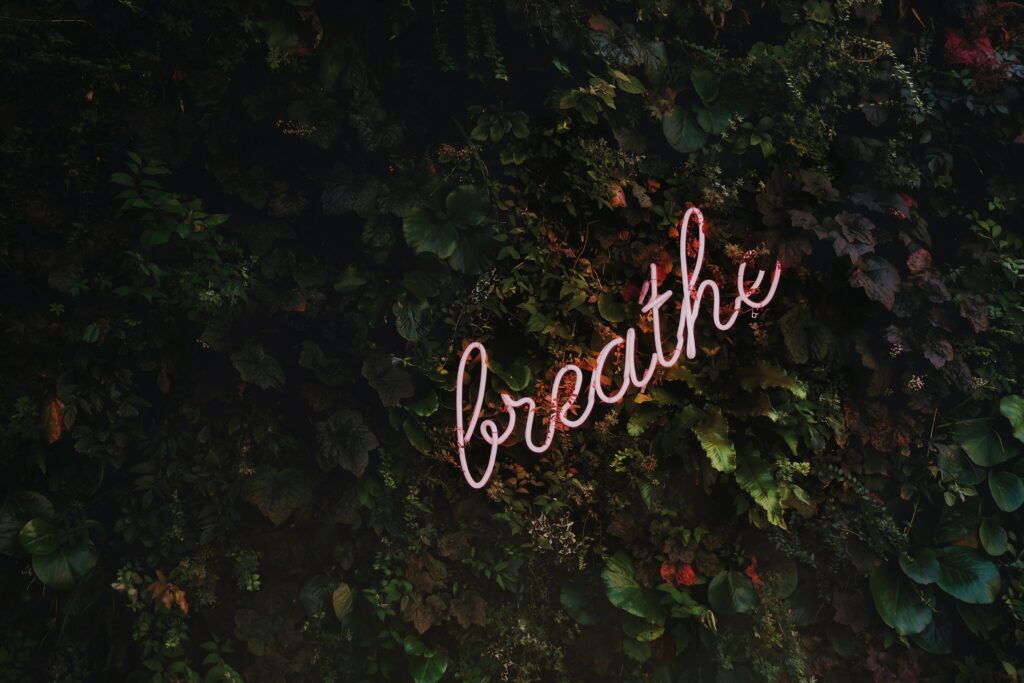Have you ever been sitting in traffic, walking down the grocery store aisle, or just minding your own business, when out of nowhere your mind begins playing an endless stream of negativity? Things that are going wrong in your life, where you aren’t doing your best, or things feel out of your control and at the mercy of circumstance? It’s so easy to do. Sometimes it seems impossible NOT to do. And once it starts, it can be hard to stop.
The “Why me?” cycle is that moment when your mind begins to obsess over all the things that aren’t working, and it can be overwhelming. In extreme cases it can threaten your job, your relationships, and even your life, particularly when “Why me?” spirals into hopelessness and suffering. And perhaps most perversely, it tends to rob you of the strength you need to ACTUALLY DO SOMETHING about the situations!
I’ve faced this tendency with my own mind for most of my life, but whenever I say it out loud, even those who know me best are surprised. They see me as positive, happy, always smiling and laughing, almost annoying so! And in their defense, what they are seeing is not an act. It is a true expression of how I have LEARNED to not only cope with difficult situations, but to be happy AS A MATTER OF HABIT.
Yes, Habit. We tend to think of happiness as something that happens when things are going well. When we have money. When our goals are being met. When people are treating us well. And OF COURSE, those are all things that make happiness easier, but they don’t create it. From a strictly biological standpoint, happiness is the result of the right mixture of neurotransmitters (most notably dopamine and serotonin) squirting around in the right parts of our brains. This why antidepressants often work – they modify those chemicals in our brains to produce (hopefully) a happiness effect.
What a lot of people are still learning, though, is that in addition to modern pharmacology, we have a number of things we put into practice that, in time, pull the plug on the “Why me?” spiral.
HAPPINESS AS A CHOICE AND A HABIT
Consider this: Happiness happens in your head. Choices and habits happen in your head. The same organ manages both, and even some of the same parts. For MOST people, in MOST cases, with a bit of practice and awareness, we can harness that fact to truly make happiness into a choice, and then a habit, eventually reaching a point where you don’t even think about it consciously. Take a moment to let that idea swim around in your head. Please note: If you’ve ever experienced severe clinical depression, then you already know that there are cases when the choice of happiness has been taken away. It does happen. Even in such cases, though, these practices do help and can make a difference in your experience.
1) SEPARATE BETWEEN SITUATIONS, AND HOW YOU FEEL ABOUT THEM
Let’s imagine that my car breaks down on the highway. It’s raining. I’m supposed to be somewhere. I get out to give the engine a baffled look because I’m not a mechanic. I get splashed by a passing car. How do you feel? Sympathetic? Compassionate? Or maybe amused because you like slapstick comedy, and we’re not talking about real situation, after all.
Now, re-read my description in the first paragraph. Notice that at no point did I say how I felt. I reported the situation as a series of statements. This is a technique borrowed from Marshall Rosenberg’s Nonviolent Communication (NVC) Process, which he calls Observation. In it, we practice describing what we observe free of any evaluation or judgement. The next step in Rosenberg’s process is to THEN state “how I feel” in terms of emotions and sensations.
The Nonviolent Communication process goes on to replace “and here’s what I think about it!” with and expression of needs and then requests to those around us, but beginning to practice those first two steps ALONE will begin to radically change your experience of the world around you.
2) BALANCE THE EQUATION WITH GRATITUDE
Have you ever made a Pro-Con list for a decision, listing the reasons for and against in two columns? After making such a list, would seem reasonable to then go and purposefully ignore one side or the other, or even part of it? And yet, whenever we find ourselves obsessing about all the things that are wrong, this is precisely what we are doing. You have a bad day at work and things aren’t going well. On the way home, you obsess about being yelled at for something that wasn’t your fault and you descend into a “Why me?” spiral, all the while ignoring … that you have a home, transportation, food, a place to sleep, a functioning civic government, friends or family or pets who love you.
Our tendency is to wipe out the list of things that we have to be grateful for, and only count the ones that support our negative view. So, the next time you find yourself doing this, take a step back and ask whether you are wiping out your gratitude list!
3) BREATHE … DEEPLY
It sounds simple. Almost too simple. You might be thinking, “If I weren’t already doing that, I’d be dead.” And rightly so. But one thing I learned when becoming a certified yoga instructor is that there is a difference between the shallow breathing that most of us do, and the habit of pulling in deep lungs full of oxygen rich air. Deep breathing has two primary effects. When we draw air into our lungs, little things called alveoli extract the oxygen from the air and move it into our bloodstream. Our brains then use that oxygen to do what it does. Go without it for about 6 minutes, and you’ll either be brain dead or all the way dead. But even a low supply of oxygen triggers a stress reaction from our brains. It alters our perception and mood. Breathing deeply brings that oxygen level back where our brains would like it to be.
A related effect is that when we breathe deeply, we activate a part of our nervous system call the parasympathetic nervous system, often called the “rest and digest system”. It signals to our body that we can relax, and slows our heart rate, among other things. It is one of the major benefits of meditation practice, as well.
THE BOTTOM LINE
At the end of the day, everything we think and remember and feel about everything that happens to us all comes back to our brain. And while there is still a LOT that we don’t know about how our brains work, we have consistently seen that they are more flexible than we previously thought. By starting to incorporate these and other mindfulness practices into your life, you really can begin to alter how you experience the world around you, and you can do so regardless of whether or not things are going your way.
Click here for more on Nonviolent Communication.
Click here for more information on Practicing Gratitude.



